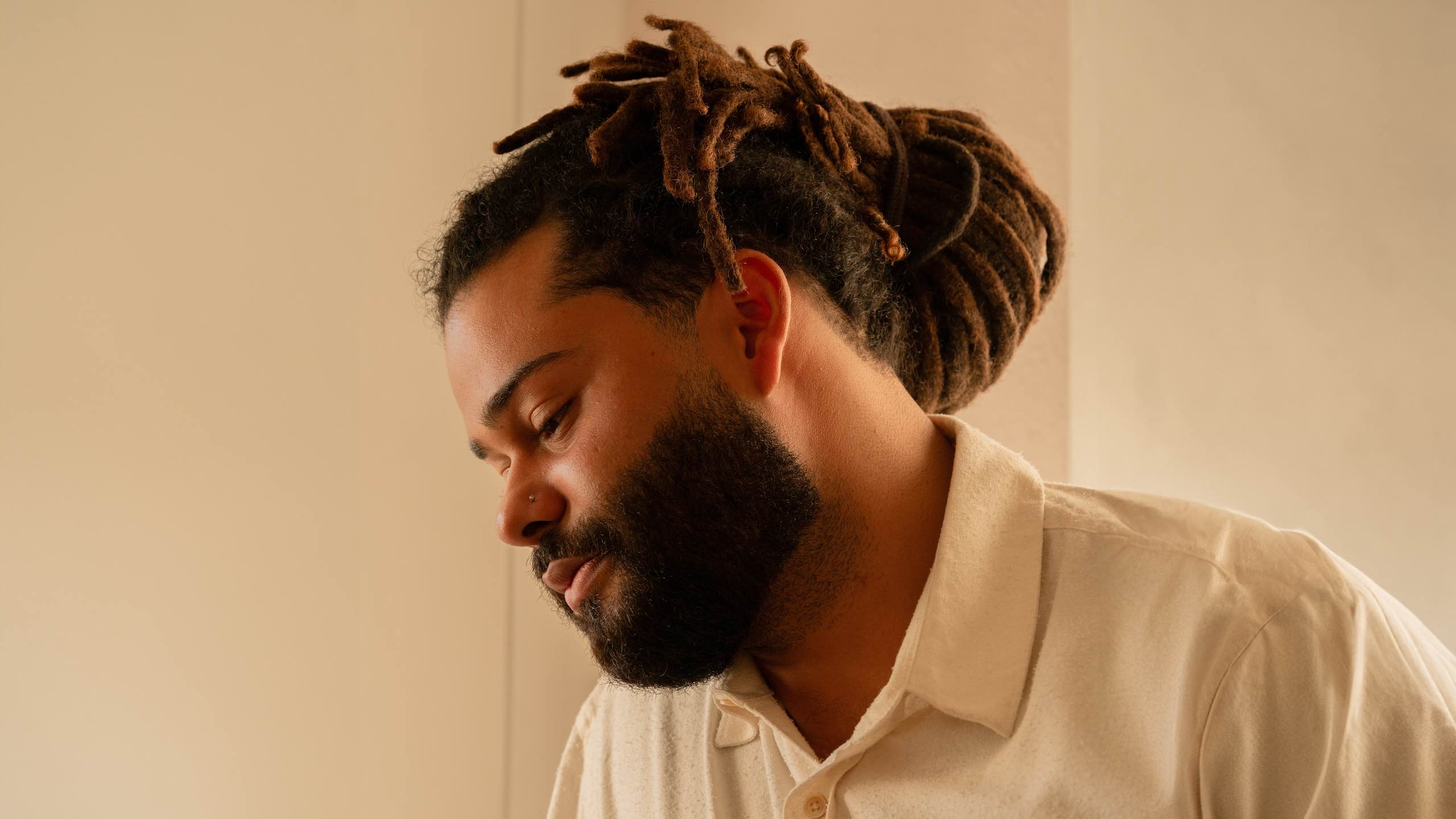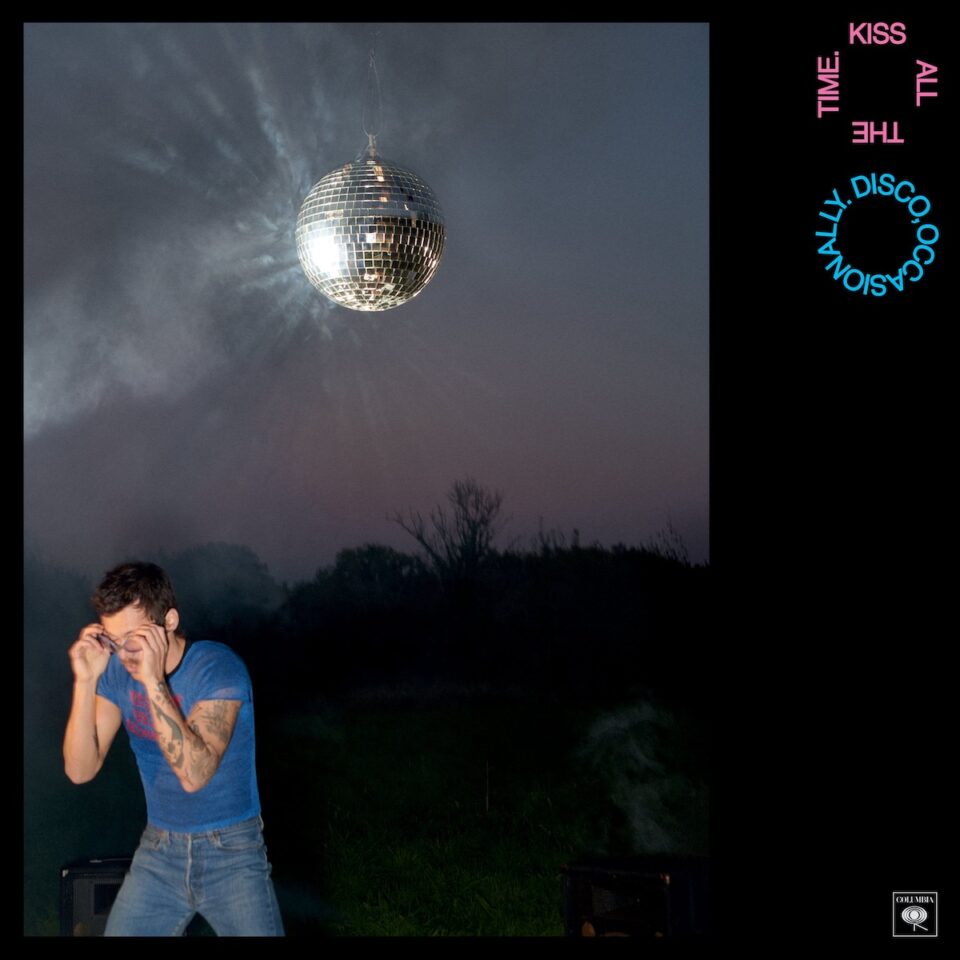RiTchie knows the comparisons are coming. With the release of his debut solo album, Triple Digits [112], the Injury Reserve/By Storm rapper knows fans won’t be able to help putting his new work up against earlier releases under both names. It comes with the territory of going solo after a successful run with a group, but Ritchie’s circumstances are a bit different. When Injury Reserve first emerged, it was a trio that consisted of Ritchie, producer Parker Corey, and emcee Groggs, who tragically died in 2020. IR released their final album By the Time I Get to Phoenix in 2021 before retiring the name and re-emerging as By Storm with 2023’s “Double Trio” single.
Despite RiTchie’s embrace of life as a solo emcee, strands of his earlier life are still all over this album, from his delivery and subtle ability to deconstruct the rap genre to his continued collaboration with IR partner in crime Corey. His new album’s title was inspired by the oppressive temperatures in his home state of Arizona—he’d have to turn the A/C on in his home in-between takes while recording, and when he’d leave the house he’d notice people getting off their Instagram fits despite it seeming too hot to even move. Less superficially, the album is about what happens when we face inhospitable landscapes, when decisions aren’t easy and the world doesn’t feel like it’s made for us.
RiTchie has always approached rap this way. As a student of the game, he has a near-encyclopedic knowledge of the genre’s history, and spends a lot of time creating skewed, surreal takes on traditional tropes. It’s a funhouse interpretation of rap, and on Triple Digits he effortlessly brings the medium closer to his vision.
Does the feeling around a solo release feel different than it did with Injury Reserve albums?
So much different. Especially now, being a decade into a group project that has something really sustainable and solid. There are always going to be some type of implications because of crossover fans, but I’ve walked into this with zero expectations. It’s as if I’m bringing this off the ground. But dude, it’s so much different. I haven’t felt like I was releasing a record where I wasn’t trying to deconstruct the genre, and this one feels like it’s more of a record for me personally, and for my friends to ride around and listen to in their cars. Previous IR records were always like, “How can we push this?”
I know that a lot of things that have kept the narrative of Injury Reserve and By Storm pushing forward won’t be there in regard to critical reception or anything like that, but that just so isn’t the goal for this record. I feel super vulnerable—and not in the sense of “I’m really putting myself out there” narrative-wise on the record. It’s just putting yourself out there and seeing like, “OK, does anybody really care when I pull all the layers back?”
It must be much different going at it alone. There’s no one to really fall on the sword with you if things don’t go the way that you want ’em to.
Yeah, for sure. The good thing is that it’s the same team as if it was Injury Reserve or By Storm. Parker [Corey] has been heavily involved, so at least I’m not scrambling trying to figure all these things out by myself. It’s been a lot of fun, and it’s also fun knowing that I still have the group stuff—it’s not like I’m putting all my eggs in one basket. I’m trying to create this side story that I hope can accompany the group stuff.
“If this is too similar to the IR and By Storm stuff, it’s not worth it at all. I don’t want it to be a distraction. I want it to just feel like something different.”
I know you had collaborators, but what was it like honoring no one’s vision but your own?
It’s been a lot of fun. It’s a little bit more difficult because you don’t have that other voice to be like, yes, for sure. A lot of it is really just faith in yourself, which has definitely been a different journey. It’s been liberating, but, going back to your first question, it’s also scary. At the same time, a lot of the times that I’ve had fears going into records it’s almost always been a good thing.
Was it difficult to know when tracks were done?
I tried to approach this really simply, because Injury Reserve is a very tinker-based group. It’s always ever-evolving. It’s not beat, vocal, and the song’s done. It’s like, beat, vocal, new song, new beat—and it’s always happening. With this new project, I was asking, “How simple can I make this?” for a good reason. If this is too similar to the IR and By Storm stuff, it’s not worth it at all. I don’t want it to be a distraction. I want it to just feel like something different.
“It’s always been about resetting people’s expectations.”

What was the writing and recording process like? Did it take a long time?
I’ve always therapeutically done looser, more straightforward music on the side just for myself. I had these things that I was listening to on my own. When I went to make “Dizzy,” I put a few tracks together and was like, “This is cool.” “Ritchie Valens” was exactly what I wanted to do. When I recorded that one, things started going, going, going. It was basically me having a couple things lingering and then making one song that felt like, “Oh, OK, this can be something.”
Is there any record you can point to sequence-wise that’s in conversation with Triple Digits?
No, not at all. Honestly, the whole time I was just thinking about records that we’ve released. I’m always thinking about the second song and the last song. I love making top-heavy records because some of my favorite records when I was a kid, I never even got to the end of ’em because I would just start the record over. I don’t think that this particular record is top-heavy, but I’ve always historically liked to really stack records.
How do you balance your personal love for sequencing and figuring that out with the state of the industry demanding singles and that sort of thing?
I don’t think about that at all. None of that stuff has ever really been our strength. We’ve always been project-based artists, and even when I made this, it was, “What is this going to sound like in 35 minutes?” At that point, it’s like, “OK, what’s the best preview for the record?” That’s how I come up with the singles. Granted, when you’re thinking about the record you do think about the singles, but I’m always prioritizing a record because that’s what’s going to really solidify my goals as a musician. So I always approached Triple Digits as an album.
Historically, what I think has always worked for us is leading with something that’s more of a palate cleanser than maybe the best traditional single. It’s always been about resetting people’s expectations and giving people a preview of the mentality of the record, but not necessarily what the record sounds like. We released [Live From the Dentist Office] and it randomly did really, really well. The next mixtape we did, the first single was “Oh Shit!!!,” which completely messes with what expectations are. Then we did an EP in which the first single was “North Pole,” which sounds nothing like the record before and doesn’t necessarily sound like the whole entire record that it was on.
“I’m always prioritizing a record because that’s what’s going to really solidify my goals as a musician. So I always approached Triple Digits as an album.”
Are you nervous about touring solo for the first time?
Very, very, very nervous. I think that’s the thing that I’m the most insecure about, only because that’s the one thing that I feel like is going to feel drastically different. The IR show was all about making the best possible concert experience we could in terms of production, stage design, lights, and audio. I’ve decided that I’m by no means trying to accomplish that at all, because I can’t compete with it. But I’m hoping just to have fun and for it to be just like this record. I’m hoping for it to be a little bit closer to an experience of just me as a person, and that’s the way I’m approaching it.
Were there any big thematic ideas that tie the record together?
It’s all stream-of-consciousness thoughts about interpersonal relationships, politics, trying to get people into my life. I really wanted to have these tiny tidbits that reflected the idea of [triple-digit temperatures], like people still trying to live their everyday lives while it’s in the 110s outside—people literally try to have nightlife and stuff when it’s 112 degrees outside. I guess this is all about the experience of living in a place like Phoenix in the peak of summer and still trying to be a human being and not a recluse at home. It’s funny when people in Phoenix are still trying to get their Instagrams off and it’s 115 degrees outside.
Did the heat affect the way you recorded the album?
I got my A/C controlled on my phone so we would turn it off when the take started and turn it on when we were done. I was wiping sweat in between takes. My room faces south, so later in the day when it hits about two, three, it’s bad. I made this record in the peak of the summer, so that’s probably why heat turns up on so much on the album. FL







